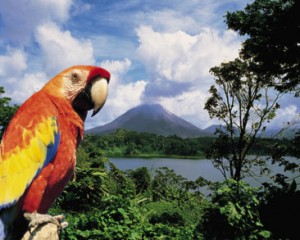-
What is Eco-Tourism?
 Travel is a global billion-dollar industry with many countries depending on tourism as a major part of their local economy, but along with these developments come certain sacrifices and sometimes negative effects ranging from environmental issues to cultural problems. Mass tourism has disturbed natural habitats of animals and killed different plant species while displacing communities from their ancestral lands.
Travel is a global billion-dollar industry with many countries depending on tourism as a major part of their local economy, but along with these developments come certain sacrifices and sometimes negative effects ranging from environmental issues to cultural problems. Mass tourism has disturbed natural habitats of animals and killed different plant species while displacing communities from their ancestral lands.Eco-tourism is the exact opposite of mass commercialization. With eco-tourism, the effects that commercialization can inflict are prevented. A destination is admired at its raw beauty – without disrupting its flora and fauna and local traditions. The culture is respected.
Costa Rica: Premier Eco-Destination
As more and more people are more conscious of sustainable tourism, many countries market themselves as an eco-destination. However, it is not just about building earth-friendly hotels and serving organic food to guests. Nor it is about discovering unheard and secret places. It is a practice that a destination has to breathe and live.
One of the trailblazers when it comes to eco-tourism is Costa Rica. This South American country has all the qualities for eco-tourism and with their policies, it is now one of the top eco-destination today. With the help of its government, eco-tourism has been a part of their tourism policies. Nobel Prize Winner Costa Rican President Oscar Arias Sanchez promoted “Peace with Nature” that extended to their tourism industry. Costa Rica aims to be the first carbon neutral country.
In Costa Rica, resorts are designed and built in accordance to environmental protection while tours are arranged to ensure respect for local communities from the Ticos to indigenous groups. A visit to Costa Rica involves spending your nights in a “green” hotel or villa, and participation in activities that let travellers admire its attractions and local crafts without disruptions.
We all love to travel and it is one of the secrets for a happier life. Today is the time to rethink about travel. Eco-tourism is the best way to ensure that the next generation can still enjoy the beach, the wilderness and engage in local crafts and traditions.





